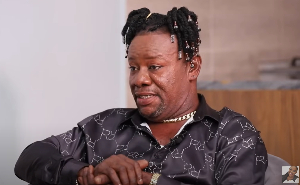The back-to-school season is here with us again and I want to celebrate a group of men and women who are often maligned and marginalised: teachers. Like so many others, it was a teacher who changed the direction of my life, and to whom I’m forever indebted.
Research has shown that many Ghanaians believed that high-achieving students should later be recruited to become teachers, but most parents do not as a first choice want their children to take up teaching in the public schools as a career.
So how do we expect to entice the best and brightest to become teachers when we keep tearing the profession down? We take the people who so desperately want to make a difference that they enter a field where they know that they’ll be overworked and underpaid, and we scapegoat them as the cause of a society-wide failure.
Many teachers no doubt feel excluded and misunderstood and undermined and feel the government does not listen to them enough yet teaching is the profession that teaches all the other professions. If a politician had 40 people in his or her office at one time, all of whom had different needs, and some of whom didn't want to be there and were causing trouble, and the politician without assistance, had to treat them all with professional excellence for nine months in a year, then he might have some conception of the classroom teacher's job. The simple reason for this age-old disenchantment comes from the fact that teachers do not speak with the same voice or indeed have no strong advocates to speak on their behalf. Let us think of our teachers as the engine of education that will drive the socio-economic development of our nation. In each of us there is a private hope and dream which, when fulfilled, can be translated into benefit for everyone and greater strength for our nation.
We as parents, and as a society at large, must therefore acknowledge our shortcomings and the enormous hurdles that teachers must often clear to reach a child. Teachers may be the biggest in-school factor, but there are many out-of-school factors that weigh heavily on performance, like growing child poverty, hunger, homelessness, home and neighbourhood instability, adult role-modelling and parental pressure and expectations.
The first teacher to clear those hurdles in my life was Miss Hammond. From the first through third years in primary school, I went to school in a neighbouring town because it was the school where my sisters had attended. I was not a great pupil. I had very little confidence. I was left handed and I was minded to write with my left hand but I was scared that my teachers who were very strict would not want me to write with a left hand. I refused therefore to write and began to grow invisible. My teachers didn’t seem to see me nor I them. (To this day, I can’t remember any of their names.)
My work began to suffer so much that I was temporarily placed in the “slow” row. No one even talked to me about it. They just sent a note. I didn’t believe that I was slow, but I began to live down to their expectations.
When I entered the primary class four, my mother moved me into another school in my hometown. I was placed in Miss Hammond’s class. A new teacher, from Accra who spoke very little of my native language and there I was, a little nothing of a boy, lost and slumped, flickering in and out of being having to speak in English to this new teacher..
She was a pint-sized firecracker of a woman, with short hair, round glasses which fitted her face so well, and a thin slit of a mouth that she kept well-lined with red lipstick. On the first day of class, she gave us a times table quiz. Maybe it was the nervousness of being the “new child,” but I quickly jotted down the answers and turned in the test — first.
“Whoa! That was quick. Blow, we’re going to call you Speedy Gonzales.” She said it with a broad approving smile, and the kind of eyes that warmed you on the inside. She put her arm around me and pulled me close while she marked my paper with the other hand- the left hand. I got a couple wrong, but most of them right. And I saw the first time a teacher writing with the left hand. I couldn’t remember a teacher writing with the left hand, nor ever smiling with approval, neither did I remember any putting their hand around me, nor praising my performance in any way. It was the first time that I felt a teacher cared about me, saw me or believed in me. It lit a fire in me. I never got a wrong mark again. I figured that Miss Hammond would always be able to see me if I always shined. I always wanted to make her as proud of me as she seemed to be that day. And, she always was. In secondary school, I was identified as gifted and talented, enjoyed government scholarship and I went on to graduate with an upper of my class and became a lawyer. And all of that was because of Miss Hammond, the firecracker of a teacher who first saw me and smiled with the smile that warmed me on the inside.
We all carry little dreams of making a difference for our country in its socio-economic transformation and this is achievable only through education and only deliverable through our teachers. To achieve the kind of socio-economic transformation that we are envisaging in the next decade, we need a well-trained and motivated teaching profession that will deliver the newly redefined basic education. For many years the teacher manpower has been experiencing a consistent deficit of teachers ranging from 10,000 in the year 2000 to the current levels of 45,000. We as a country therefore need to improve on the number of teachers in a good ratio to pupils as well as reward excellent teachers. To this end the initial teacher training in our colleges and universities must be of good standard and this must be complemented with continuous professional development.
So to all of the Miss Hammonds out there (sadly she is dead now and may her soul rest in perfect piece), and all the teachers struggling to reach lost children like I was once, I just want to say thank you. You deserve our admiration, not our contempt. That is why Nana Akufo has christened his educational policy “Teachers’ First”
The Teachers First agenda has the following highlights: 1. An improved initial teacher training of teachers with the view to giving them transferable skills through Leadership Development Programmes
2. A special bursary for excellent teachers with initial or Continuous Professional Education in Mathematics, Science, Technology and Vocational education
3. An establishment of more specialist teacher training colleges in our university campuses to run correspondence courses aimed at raising the certificates of our teachers to degree levels.
4. A special bursary for teachers who enroll in distance learning programmes.
5. An accelerated promotion for teachers and financial reward for teachers who stay on in the rural areas as defined by the GES.
Kwesi Atta-Krufi Hayford Member – NPP Manifesto sub-committee on Education
Opinions of Thursday, 8 September 2011
Columnist: Hayford, Kwesi Atta-Krufi


















